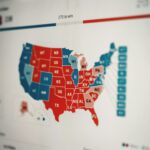Weekly Writers Round-Up: Pandemic History, Lessons from Australian School Choice, and Environmentalism at the RNC
Each week, we’ll be featuring opinion pieces from the alumni and current participants of AF’s Writing Fellows Program. A few highlights from the past week are below. Do you dream of having bylines like these? Learn more about how the Writing Fellows Program can help boost your writing career!
Comparing N.C.’s responses to Spanish Flu and COVID-19 by Brenée Goforth (Fall 2018) in Carolina Journal
History repeats itself, but with slight variations. The high-rise jeans of today’s Tik Tok teens hit different than the stiff acid-washed denim from the 1980s, but they elicit déjà vu nonetheless. Likewise, the global pandemic of today is a somewhat different monster than the one that ravaged the world more than 100 years ago, but there are still many similarities. In the late 1910s, when the Spanish Flu shook the country, people used similar mitigation methods like those we use today: They wore masks, entered quarantines, and studied vaccines.
But not everything was the same…
The United States Can Learn From Australia On School Choice by Satya Marar (Spring 2020) in Townhall
Covid-19 and its economic disruptions are wreaking havoc on our schools, with many facing threats to their short- and long-term funding. And while some governments have decided to keep funding public schools at last year’s levels, private schools that lose students aren’t as fortunate. Although states like Oklahoma and North Carolina have directed some Covid-19 relief to private schools, for many, it hasn’t been enough. And despite the stereotype of private schools — that they’re affluent places of wealth and privilege — those worst-hit by Covid-19 have often been modestly priced and serving large numbers of low-income kids.
Cato Institute reports that 117 private schools have been forced to close permanently due to Covid-related reasons since the pandemic began. Ninety-eight of these have been Catholic schools, where the average annual fees are just $8,000, in contrast to the $15,000+ per pupil that taxpayers spend on U.S. public schools. Despite that disparity, a 2018 study found that high school students attending these Catholic schools had higher grades, were more likely than average to graduate, and were more likely to graduate with a STEM degree — effects observed across subgroups including non-white and low-income students…
RNC — Republicans should pledge to protect the environment by Quill Robinson (Spring 2020) in The Hill
As November approaches, Republican candidates up and down the ballot have a decision to make: show strong leadership on the environment, or return to the unsustainable rhetoric that has caused them to lose voters. At this week’s Republican National Convention, party leaders have an opportunity to make the right choice.
The environment won’t be the top issue this election, but it will be a winning one. As Americans grapple with the challenges of life during the coronavirus pandemic, many have escaped to the outdoors for peace and relaxation. Whether visiting a National Park or the park around the corner, Americans across the country have been reminded of the importance of caring for our public lands, ensuring clean air and clean water and protecting our natural environment…




